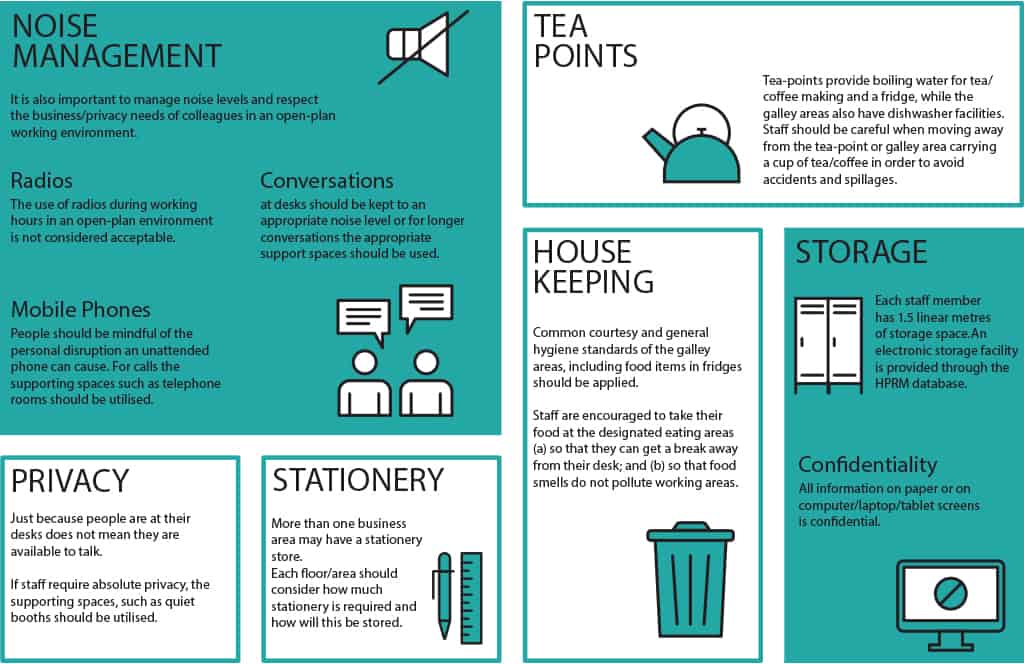NICS Space Standards
Following on from various projects we had undertaken for the Strategic Investment Board (SIB), Northern Ireland relating to local government departmental accommodation we were appointed to develop a suite of space standards for the Northern Ireland Civil Service.
This work started with detailed research on a number of interrelated topics, from the existing range of accommodation, space requirements and usage of the existing Civil Service Estate, to standards employed by other regional and local governments and agencies; through emerging and future trends, change management procedures, operational processes and health & wellbeing of workforces.
From the research and information gathering a number of matters arose which gave direction to how a space standard could be developed for the NICS, how this might translate into a ‘built’ solution and what this might mean for way people work, how it may be implemented, operated and the space and cost savings that may be achieved across the Civil Service Estate through adopting a more rationalised approach to accommodation provision.
A number of workforce categories were identified into which the majority of work functions could be allocated. Each of these categories had separate and distinct needs from their accommodation, ranging from places for focused work, group work, collaboration, dedicated and ‘place specific’ requirements through to agile and ‘nomadic’ requirements. A detailed analysis was undertaken of the type of work undertaken and how this was influenced by spatial allocation, the impact that spaces had on productivity, health & wellbeing, workforce satisfaction and staff retention.
What we found was the need for a different approach to spatial allocation, that one size does not fit all but that a flexible spatial framework could be developed that rationalised the approach to accommodation provision, offered space (and cost) savings and that could be tailored to the needs of individual organisations and users.
A ‘space budget’ was subsequently developed that set out the how an organisation could determine their requirements whilst allowing for future flexibility, bespoke requirements and greater interaction between connected departments and organisations.
This budget was used to develop a number of notional designs, based upon 400 FTEs and 800 FTEs and how these may be configured for different uses. These were used to test the space standards and develop ‘what if’ scenarios to demonstrate resilience of the accommodation, how new agile working methods could be adopted and how buildings or floorplates may be zoned for optimal efficiency.
A further part of the study was to develop an overarching performance specification for future accommodation projects which considered design quality, sustainability, workplace density, comfort and adaptability as well as more technical matters around statutory and regulatory requirements. In addition the study considered ‘change management’ and how stakeholder engagement was vital to implementation.
The study also looked at how adoption of a new approach and space standard could deliver real cost savings across the estate without detriment to the workplace environment.
A summarised version of the report was released for adoption by the NICS and their advisors.
 close
close
